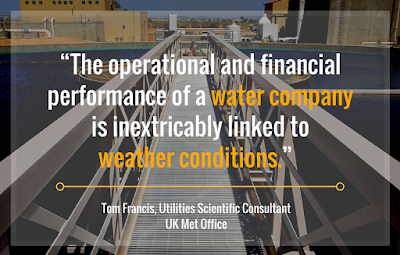5 Reasons Smart Water Utilities Need a Weather Station #3: PUBLIC SERVICE

Weather data can serve as an important component of a water utility’s mission to serve the public. Several of these functions can be impacted by weather conditions. Water utilities manage public resources that offer recreation and education opportunities such as reservoirs and wetlands. Water utilities take the lead in promoting optimal water usage and conservation. Additionally, weather data can be a component of public communication during extreme weather events which may impact water service. Recreation/Education Many water districts incorporate reservoirs which may also be used for public recreation. Reservoirs incorporate obviously large bodies of water and often hilly terrain which lend themselves to creating a unique microclimate compared to population centers. Chances are good that visitors are traveling there from a different microclimate. Weather data can be used for reservoir management and made available to the public to determine whether weather conditions are cond...




